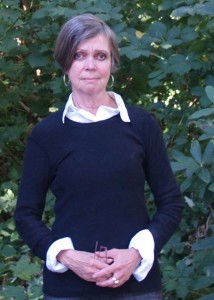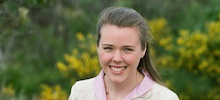
Janet Giltrow
The Centre for Teaching, Learning and Technology has partnered with the Dean’s Office on this new project.
It aims to work collaboratively with departments, schools, institutes and programs to develop discipline-specific learning outcomes.
The project team comprises Janet Giltrow (Senior Associate Dean, Students, Faculty of Arts), as well as CTLT staff Ilia Starr (Arts Outcomes Project Manager) and Roselynn Verwoord (Curriculum Consultant).
Janet Giltrow answers some specific questions about the Arts Outcomes Project:
Q: What can you tell us about the project on learning outcomes you’re working on?
Janet Giltrow: The Arts Outcomes Project asks departments to state the outcomes of their programs: upon completion of their course of studies, what will graduates of a program know and be able to do? While every program might be tempted to claim communication and critical-thinking skills, we are asking departments to delve deeper, into their disciplines. What does it mean, for example, to think like an economist or a psychologist or geographer? What does it mean to communicate as a linguist, a philosopher, or a classicist? Are there ethical dimensions to the practice of literary studies, for example, or political science or history? What can graduates be said to take into the world, to contribute to communities?

Ilia Starr
Statements of program outcomes will provide a context for decision-making, long- or short-term strategies for programs’ development, and investment in areas of strength or areas of opportunity. And program outcomes provide a context for curriculum renewal: does the program’s current curriculum enable students to reach the stated outcomes? Can some outcomes be achieved through co-curricular means, or through partnerships with other units?
We are in the early stages of the Arts Outcomes Project. As we go on, program outcomes will come into dialogue with the learning objectives of programs’ courses, and eventually with Faculty-level educational outcomes: Arts’ expression of the goals of UBC’s Place and Promise.

Roselynn Verwoord
Q: Is there a difference between program outcomes in undergraduate versus graduate courses?
Janet Giltrow: Yes, no doubt – there will be different expectations for program outcomes depending on the level and nature of the program. However, we are not close to these differences yet. In this phase of the project, we are focusing on the main undergraduate specializations in Arts at UBC.
Q: What is the relationship between a learning objective and a program outcome?
Janet Giltrow: The learning objectives of courses will typically be more local to specific areas of a discipline. Program outcomes, on the other hand, generalize these objectives at the discipline level. Learning objectives designed by instructors for course-level activities would still bear the earmarks of how they were achieved in a particular course – the topic or sub-field, the application, etc. Program outcomes lose these earmarks and reflect overall learning expressed in broader terms.
This article was first published in the UBC Faculty of Arts electronic newsletter, Inside Arts, Issue 3 May 1, 2014.

